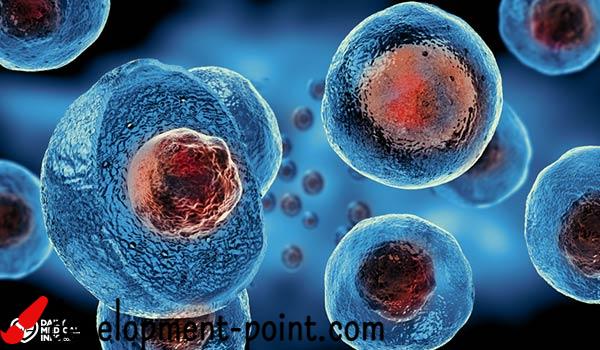Loan weed: what is it? And the most important 7 benefits and uses of it
The herb of the loan, or acacia, is one of the herbs that has medicinal benefits for the treatment of many different diseases, and it may be included in the components of some medicines to treat some health conditions as well. In this article, we will get to know the loan herb more broadly, including what is it? What are its benefits and side effects that may result from it.
What is loan weed?
The medium-sized loan tree grows in the dry regions of Africa, Australia and India. It is also known as the acacia tree. This herb has a long history in ancient civilizations, especially among the ancient Egyptians and indigenous tribes in Australia.
The herb can be used in a variety of ways, from making sweets to treating hemorrhoids. In addition, the acacia herb can be used in medicines, baking ingredients, tools, and woodwork.
The bark, roots, leaves, and gum are used for therapeutic purposes. This is because they contain effective and important components for the treatment of diseases.
Components of the loan herb
Dandelion seeds contain a significant amount of protein (about 18.25% to 35.5%), and nutritionists have shown great interest in evaluating the quality and function of these proteins.
In addition, cashews are also rich in fiber, carbohydrates, and minerals, especially the following minerals:
- potassium.
- calcium.
- magnesium.
- Iron.
- zinc.
Loan benefits
The loan plant has many benefits that may help improve some pathological conditions, and the benefits of the loan include the following:
1. Its benefits for the vagina
The cardamom plant has anti-ulcer and anti-inflammatory benefits, and therefore the cardamom has benefits for the sensitive area, and it can be used to treat vaginal infections.
In addition to the herb’s ability to narrow the vagina, one must be careful when using it, as it may cause damage to the vagina and the body. Therefore, you should consult a doctor first before use.
You can learn more safe ways to narrow the vagina, by reading our article on vaginal narrowing exercises and how to apply them.
2. Good for the stomach
The benefits of the loan for the abdomen and intestines include the following:
- The soft leaves of the herb were used in the treatment of diarrhoea, as it was found to be very effective in the treatment.
- used in the treatment of dysentery virus; This is because the herb has antibacterial and antimicrobial benefits.
- The herb is used to treat colic.
- The herb is used to treat hardening of the liver and spleen.
- The loan is used in the case of yellow ulcers caused by a defect in the liver or gallbladder.
- This herb is believed to help treat heartburn.
3. The benefits of the herb loan for the skin and face
Dandelion can be used in topical treatments to aid wound healing; Because it has some chemicals, such as alkaloids, glycosides, and flavonoids.
When applied to rats as part of a topical wound treatment, it led to faster wound healing than standard treatment.
In addition, the loan contributes to the treatment of:
- ulcer.
- Vitiligo.
- Smallpox.
- Other skin diseases, such as chapped and dry skin.
4. The benefits of the herb loan for the foot
More research is still needed, but nettle is believed to contribute to the following benefits for the feet:
- Reducing unexplained hip joint pain.
- Treatment of bilateral edema between the legs (foot eczema).
- Cracked feet treatment.
- Accelerate the healing process of foot burns.
5. The benefits of the loan herb for hair
The loan is used to protect the hair from falling out and treat dandruff and weak roots, which gives the hair a natural shine, in addition to increasing the density and softness of the hair.
A little bit of the herb is mixed with water, then placed on the hair, and the mixture is left as a mask for about two hours, then rinsed with water well, and this process can be repeated twice a week.
6. Reducing toothache
The loan herb can be used to relieve the burning sensation and toothache, or what is known as dysentery.
Some preliminary studies indicate that chewing the loan extract for ten minutes five times a day for 7 consecutive days reduces dental plaque by a greater percentage than sugar-free gum, but there is still a need for more scientific research.
7. Loan interest for pregnancy
The benefits of the herb of the loan for pregnancy include the following:
- It has an effective ability to get rid of gestational diabetes, as the herb works to regulate blood sugar levels significantly, which helps the woman’s body to get rid of it immediately after childbirth.
- Accelerate the healing of wounds, especially those that women are exposed to after natural childbirth or a caesarean section wound, by applying the herb of the herb to the wound area after grinding it well and mixing it with a little honey.
- Prevention of exposure to some infections that affect the sensitive area.
- It contributes to tightening the muscles of the uterus and pelvic muscles, so that everything returns to the way it was before childbirth.
- Helps treat inflammatory bowel disease in pregnant women.
8. Other benefits
Other loan benefits include:
- Fighting cancer and tumors in both eyes, ears and testicles.
- The use of the herb of the loan in the treatment of tuberculosis.
- The herb can be used for sex, as an aphrodisiac during sexual intercourse.
- Alzheimer’s disease treatment.
- The herb is also used as an anti-fever and in the treatment of asthma.
- Reducing blood cholesterol levels, but more research is still needed to confirm the effectiveness of this substance.
- Loan bark is used as an antibacterial, antimicrobial, and antioxidant.
- It is used as a diuretic, and to treat hemorrhoids.
- Loan bark is used to treat colds and bronchitis.
- The seeds of the loan weed are used as an antidote to one of the types of parasites that can cause malaria.
- It is used to lower high blood pressure, antispasmodic, and platelet aggregation.
- It works by fighting an enzyme that is essential for the survival of the human immunodeficiency virus (HIV).
- Having effects to fight diabetes, studies have shown that the use of soft leaves of the loan is an effective treatment for diabetes in alternative medicine.
- The herb has been used to improve milk production in breastfeeding women, but more research is still needed.
- Contributes to weight loss. Some preliminary studies indicated that consuming 30 gm of cologne extract powder helped reduce body mass index and total weight, but more research is still needed.
How to use loan weed
The method of using the loan herb differs according to the purpose of its use, and its uses include the following:
- Oral for slimming and losing excess weight, or treating other stomach problems.
- By topical use on the skin, to treat some diseases such as eczema.
- By taking some medicines that contain the herb as one of its ingredients.
- It can be added to foods and baked goods.
- Using the gum extracted from it, which is called gum arabic.
Gum arabic has many benefits, such as treating constipation and kidney disease. To learn more about the importance of gum arabic and how it can be used, read our article on the benefits of gum arabic.
Damage to the loan weed
Although there are many benefits of the cashew plant, a doctor should be consulted before using it in order to avoid any allergic reaction from the body to the herb, in addition to that the herb may have interactions with some medications, which may cause serious side effects.
The following loan damages include:
- Some of the chemicals in the herb may cause hair loss.
- May affect the ability of the intestine to absorb post-nutrients.
- May lead to complications when used for asthma sufferers.
- It may prevent the absorption of some antibiotics.
Therefore, you should consult a doctor before taking the herb, and it is preferable not to take a dose of more than 30 gm in one day.

